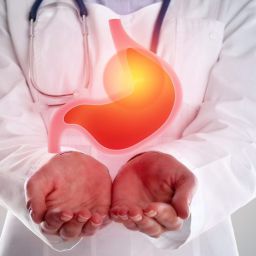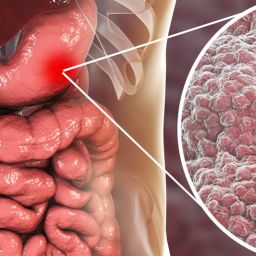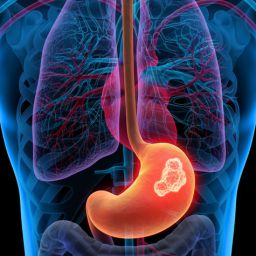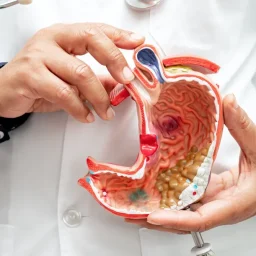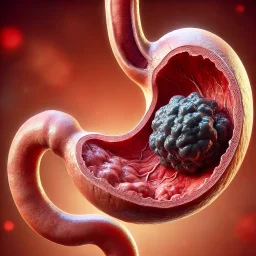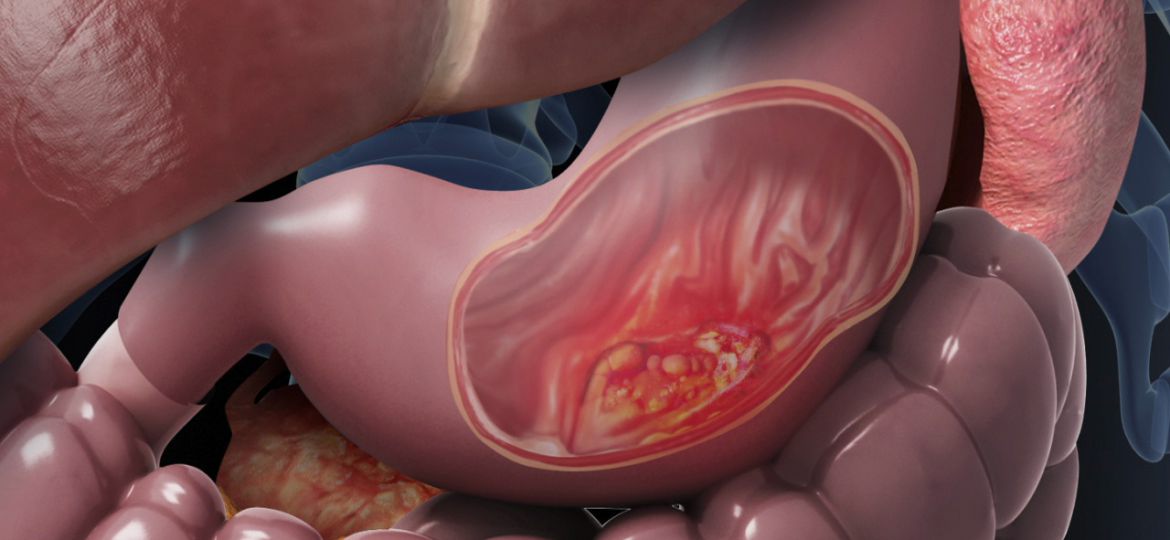
The Importance of Recognizing Symptoms
The symptoms of stomach cancer can vary widely, ranging from vague discomfort to more severe, noticeable changes. Because these symptoms are not unique to stomach cancer, they can often be mistaken for other less serious gastrointestinal conditions, such as ulcers, gastritis, or even acid reflux. This is why it is essential for individuals to pay attention to persistent symptoms and seek medical advice if they do not improve or if they worsen over time. Early detection significantly improves treatment outcomes and can sometimes lead to curative treatment.
Common Symptoms of Stomach Cancer
1. Abdominal Pain or Discomfort
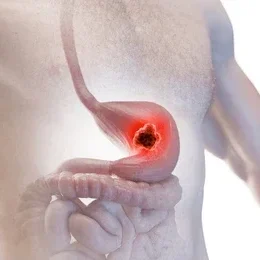
One of the first and most common signs of stomach cancer is abdominal pain. This pain is often described as a dull, persistent ache in the upper abdomen. The pain may be mild at first but can gradually become more intense as the cancer progresses. It can be felt as bloating, a sensation of fullness, or an overall discomfort after meals. In advanced stages, the pain can become more localized, and patients may experience sharp or burning sensations.
Why It Happens: Abdominal pain occurs because the tumor in the stomach affects the lining, which can cause irritation or block the passage of food. As the tumor grows, it can press against surrounding tissues, causing further pain.
Impact on Daily Life: For those suffering from stomach cancer, persistent pain can interfere with daily activities. It can make it difficult to perform everyday tasks, including eating, which may lead to a reduced appetite and other complications.
2. Nausea and Vomiting
Nausea and vomiting are prevalent symptoms in patients with stomach cancer. These symptoms occur more frequently in the later stages of the disease when the tumor may be obstructing the stomach or the gastrointestinal tract. When food and liquid cannot pass through the stomach properly, nausea occurs, and vomiting follows as a way to expel the contents.
Why It Happens: The obstruction caused by the tumor prevents normal digestion and movement of food through the stomach, leading to the buildup of gastric contents. In severe cases, the vomit may contain blood, which is a serious sign of internal bleeding.
Impact on Daily Life: Vomiting can have a significant impact on a patient’s well-being. It may lead to dehydration, electrolyte imbalances, and a general decline in health. It may also make it difficult for patients to maintain proper nutrition, further aggravating weight loss.
3. Loss of Appetite (Anorexia)
Another key symptom of stomach cancer is a noticeable loss of appetite. This symptom is often accompanied by an early feeling of fullness after eating just small amounts of food. A patient may have no desire to eat, even if they are hungry. This can contribute to weight loss, as they may struggle to consume enough calories to sustain themselves.
Why It Happens: Loss of appetite can result from the body’s response to the cancer or from the discomfort and pain caused by eating. Additionally, the tumor itself may produce chemicals that interfere with the body’s hunger signals.
Impact on Daily Life: A loss of appetite can make it difficult for patients to meet their nutritional needs. This can lead to weakness, fatigue, and further complications associated with malnutrition. The psychological effect of losing the desire to eat can also negatively affect emotional well-being.
4. Unexplained Weight Loss
Unexplained weight loss is a hallmark symptom of many cancers, including stomach cancer. Patients with stomach cancer may experience significant weight loss despite no changes in diet or exercise habits. Weight loss can be gradual or rapid, depending on the stage of cancer and how much the tumor has affected the body’s ability to absorb nutrients.
Why It Happens: Weight loss occurs because the body is unable to absorb nutrients properly due to the tumor disrupting normal digestive processes. Additionally, the loss of appetite, nausea, and vomiting further contribute to a reduced calorie intake.
Impact on Daily Life: Weight loss can lead to muscle weakness, fatigue, and an overall decrease in energy levels. For some individuals, weight loss can lead to a significant decrease in their quality of life, as they may feel constantly tired or weak.
5. Bloating and Feeling of Fullness
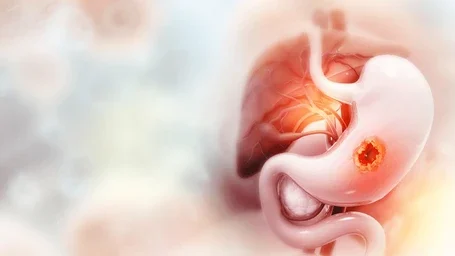
A common complaint among stomach cancer patients is a persistent feeling of bloating or fullness. This sensation is especially noticeable after meals, and some patients feel that their stomach never truly empties. Bloating can occur due to a blockage or obstruction caused by the tumor, leading to a build-up of gas and fluid in the stomach.
Why It Happens: The tumor’s growth can create a physical obstruction, preventing food and gas from passing normally through the digestive system. This leads to a sensation of fullness or bloating.
Impact on Daily Life: Bloating can be uncomfortable and distressing, making it difficult for patients to eat and perform daily activities. It can also lead to emotional distress, as the constant discomfort may cause frustration and anxiety.
6. Heartburn or Acid Reflux
Heartburn, or acid reflux, is a common gastrointestinal symptom. However, when it becomes chronic or severe, it may be linked to stomach cancer. Heartburn occurs when stomach acid flows back into the esophagus, causing a burning sensation. While many people experience occasional heartburn, those with stomach cancer may experience it more frequently and more intensely.
Why It Happens: Tumors near the lower esophagus or gastric junction can lead to problems with the valve between the stomach and esophagus, allowing acid to flow backward. Tumors may also irritate the stomach lining, increasing acid production.
Impact on Daily Life: Chronic acid reflux can make eating uncomfortable and can affect a person’s ability to sleep. It can also lead to complications like esophageal irritation and scarring over time.
7. Fatigue
Fatigue is another common symptom among stomach cancer patients, and it can be severe. Even after sufficient rest, patients may feel constantly tired and weak. Fatigue can occur as a result of the cancer itself or as a consequence of other symptoms like weight loss, lack of appetite, and nausea.
Why It Happens: Fatigue is often due to the body’s inability to absorb essential nutrients, coupled with the stress the body undergoes during cancer treatment. The emotional and psychological burden of dealing with cancer can also contribute to feelings of exhaustion.
Impact on Daily Life: Fatigue can interfere with a person’s ability to work, engage in social activities, or even carry out basic tasks like bathing or dressing. This can lead to a sense of helplessness and a reduced quality of life.
8. Blood in Stool or Vomit
One of the more alarming symptoms of stomach cancer is the presence of blood in the stool or vomit. If the cancer causes bleeding in the stomach or digestive tract, blood may be expelled from the body. Vomit that resembles coffee grounds or stool that is black and tarry can indicate the presence of blood.
Why It Happens: Tumors can invade blood vessels in the stomach lining or elsewhere in the gastrointestinal system. This bleeding can be internal and, in some cases, may not be immediately noticeable unless the bleeding is substantial.
Impact on Daily Life: Blood in the stool or vomit is a serious symptom that requires immediate medical attention. It can be an indication of advanced disease, and the patient may need to undergo emergency treatment to address the bleeding.
9. Difficulty Swallowing (Dysphagia)
Dysphagia, or difficulty swallowing, is common in advanced cases of stomach cancer. When the tumor grows large enough to obstruct the gastrointestinal tract, patients may find it difficult or painful to swallow food and liquids.
Why It Happens: Tumors can physically block the passage between the stomach and the esophagus, making it difficult for food to pass through. This can cause a sensation of food getting stuck in the throat or chest, and can lead to choking or coughing during meals.
Impact on Daily Life: Difficulty swallowing can make it difficult to maintain proper nutrition. It can also cause social anxiety, as patients may feel embarrassed or frustrated when eating in front of others.
10. Anemia
Anemia, a condition in which there is a deficiency of red blood cells, can occur in stomach cancer patients. It is often a result of chronic bleeding, which reduces the amount of oxygen that can be carried throughout the body.
Why It Happens: The presence of internal bleeding, caused by the tumor eroding the stomach lining or blood vessels, can lead to a gradual loss of blood. This can deplete the body’s red blood cell count, leading to anemia.
Impact on Daily Life: Anemia can cause fatigue, dizziness, shortness of breath, and paleness. If left untreated, it can lead to further complications, making it essential to monitor and address any symptoms promptly.
Why Early Detection Matters
The symptoms of stomach cancer can be vague and resemble those of other less serious conditions, making it challenging to diagnose in the early stages. However, recognizing these signs and seeking medical attention promptly can significantly improve the prognosis. Early detection of stomach cancer allows for the possibility of more effective treatments, such as surgery, chemotherapy, and radiation therapy. In some cases, treatment in the early stages can even lead to a complete cure.
When to Seek Medical Help
If any of the symptoms described above are persistent or worsen over time, it is important to seek medical attention immediately. A healthcare provider can conduct tests such as endoscopy, imaging studies, and biopsy to determine the cause of the symptoms and whether stomach cancer is present. Early intervention can make a significant difference in treatment outcomes and survival rates.
Stomach cancer is a serious disease, and its symptoms can often go unnoticed in the early stages. By understanding the common signs of stomach cancer, such as abdominal pain, nausea, weight loss, and blood in the stool or vomit, individuals can be more proactive in seeking medical help when necessary. The earlier stomach cancer is diagnosed, the better the chances are for successful treatment. Recognizing these symptoms and consulting a doctor when they occur is essential for improving outcomes and quality of life.
If you experience any of the symptoms mentioned in this article, it is important to consult with your healthcare provider for a thorough evaluation. Early diagnosis and treatment are key to beating stomach cancer and improving overall well-being.

